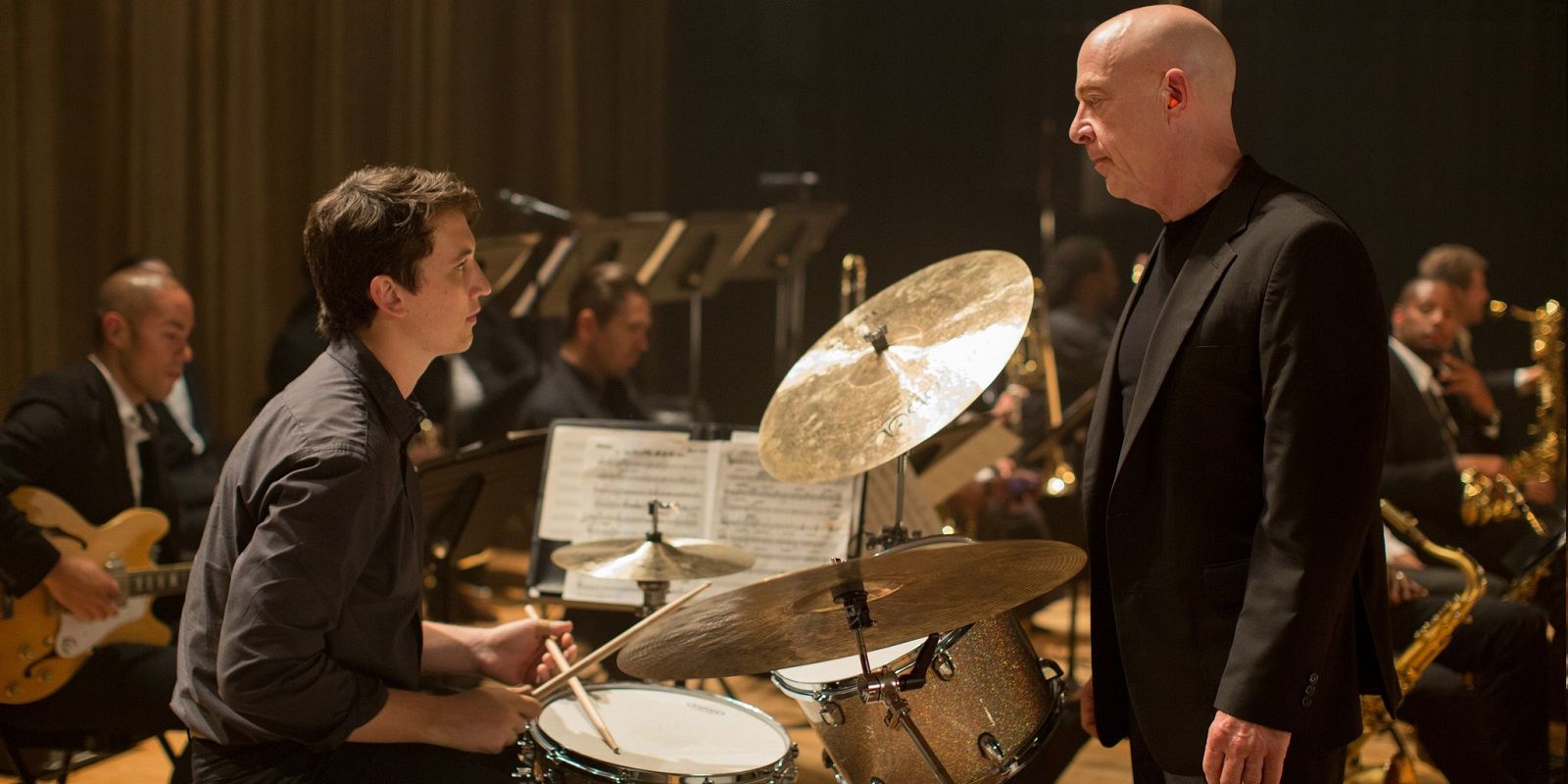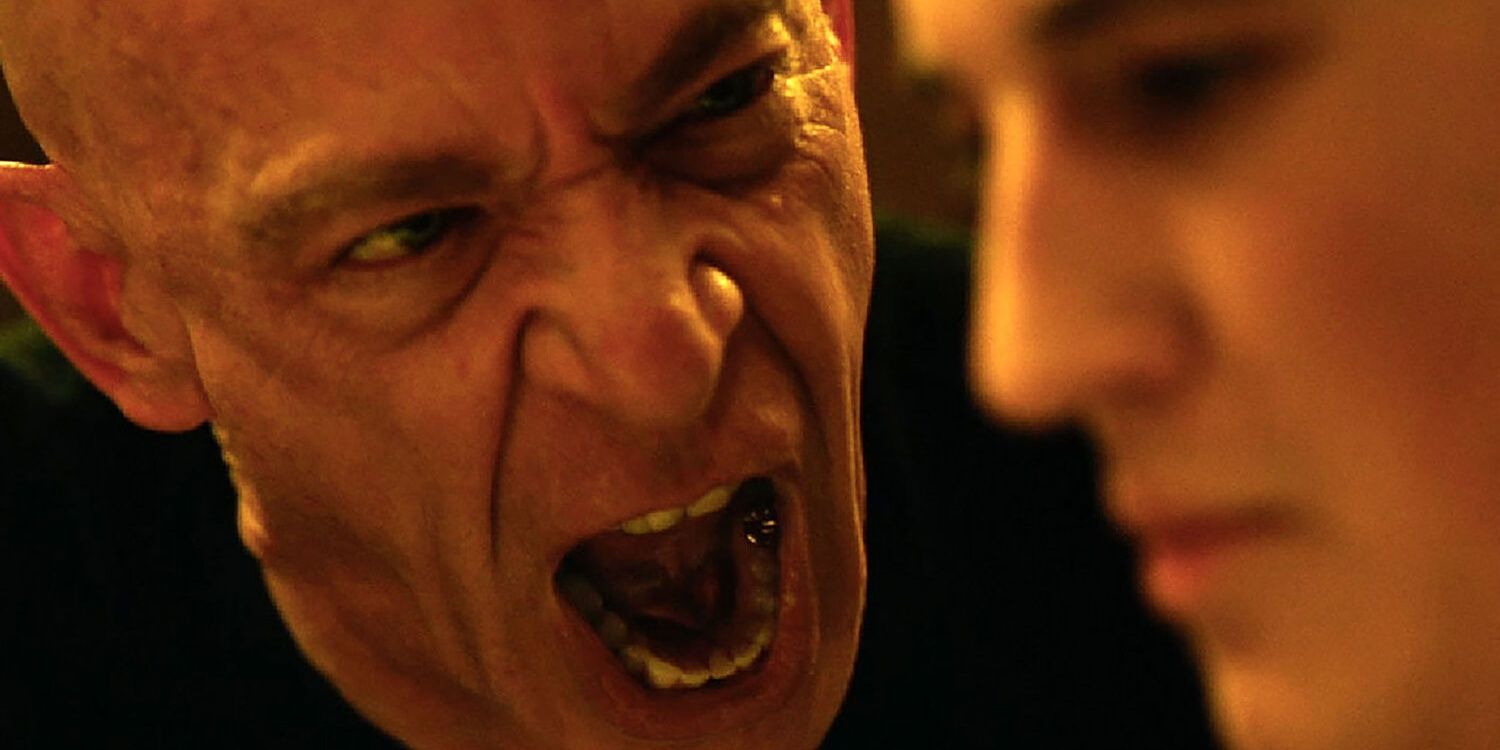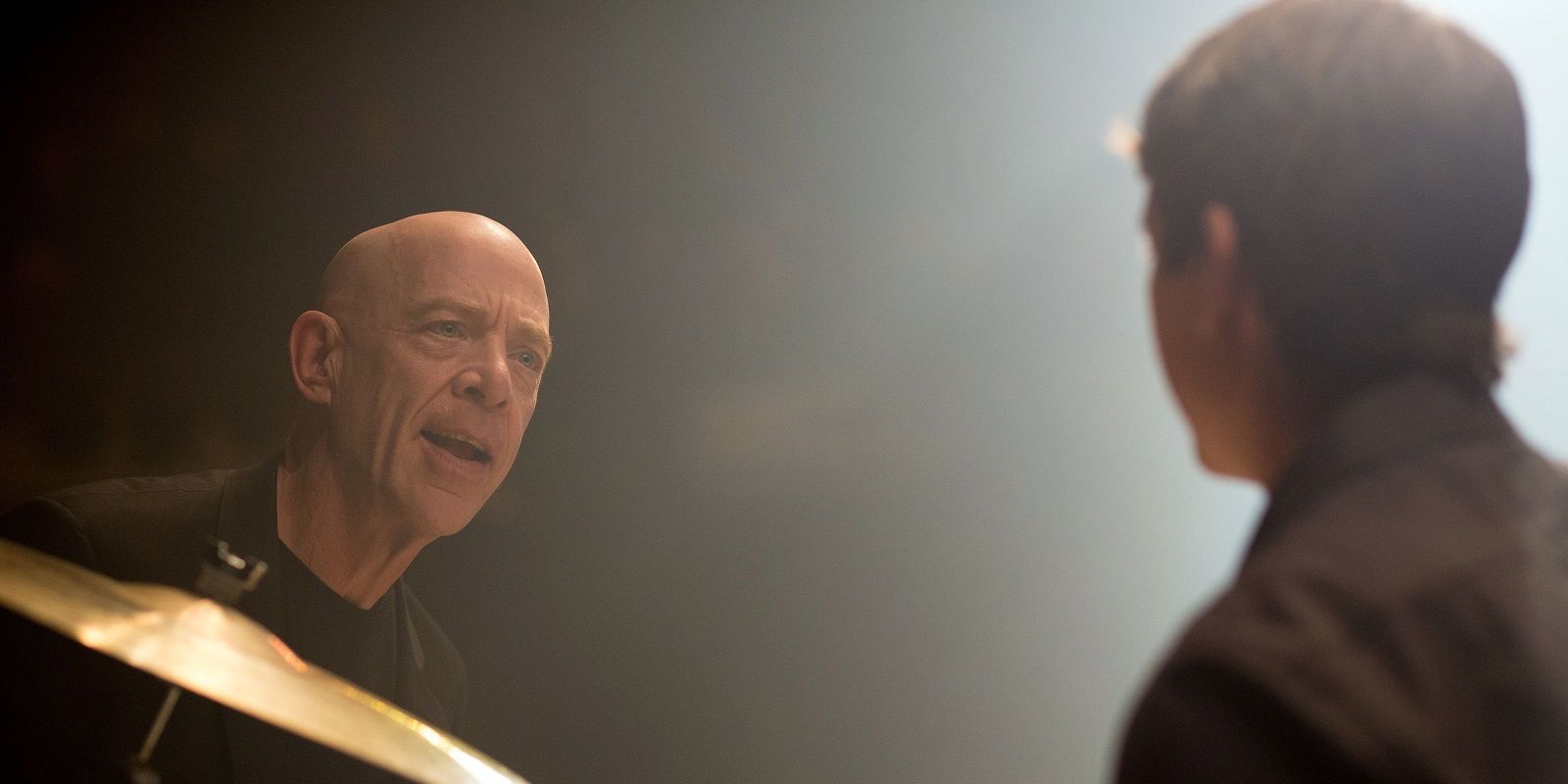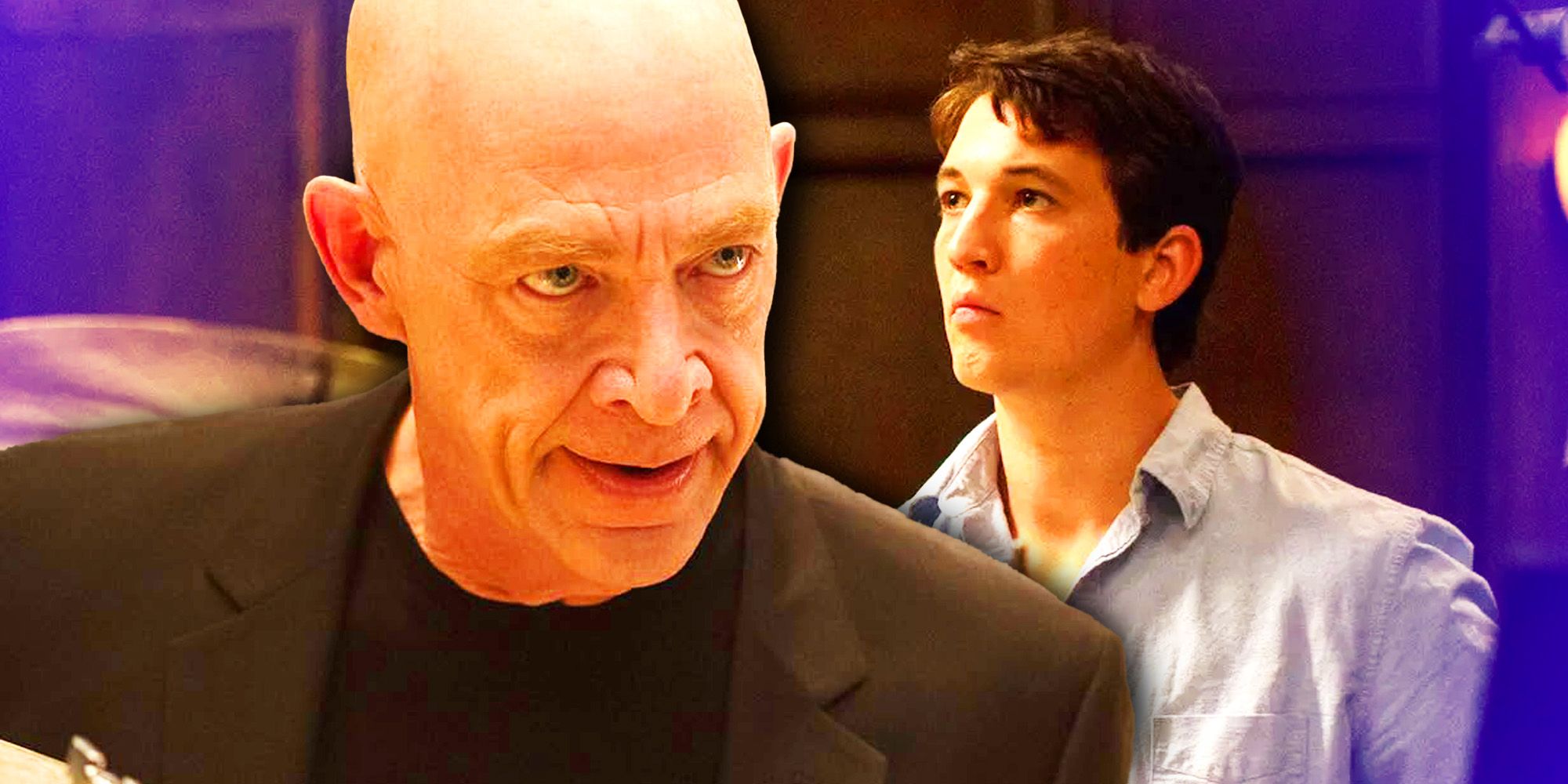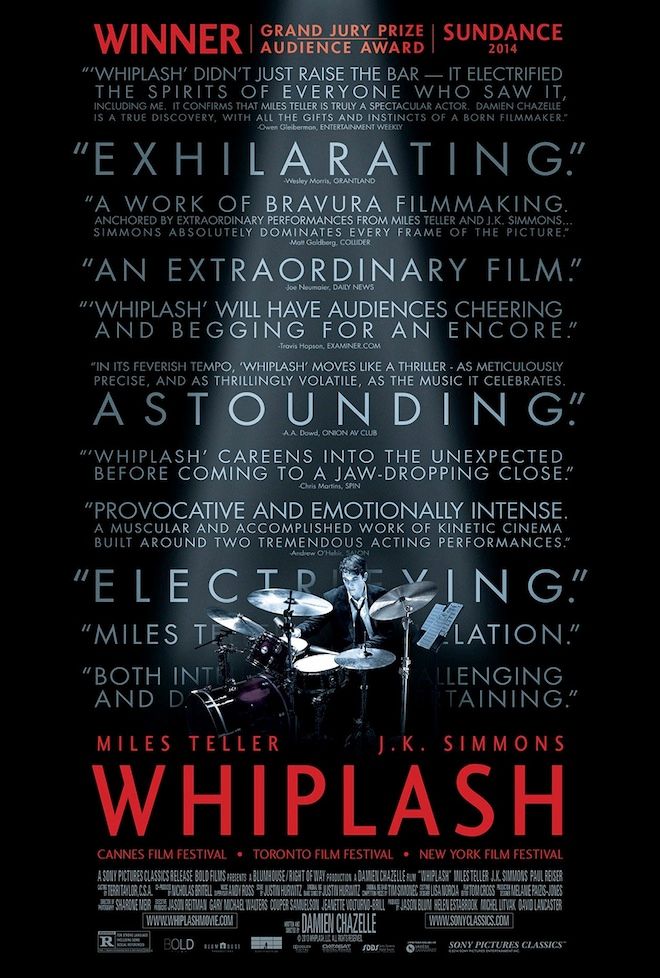Whiplash Ending Explained

Summary
- The
Whiplash
ending perfectly encapsulates the film’s key themes of resilience and the power of ambition. - The ending highlights the blurred line between mentorship and abuse, emphasizing the importance of pushing one’s boundaries for success.
- The director, Damien Chazelle, sees the ending as a fleeting moment of recognition, suggesting a dark future for the protagonist and the high cost of pursuing greatness.
The Whiplash ending is part of the reason for the Damien Chazelle movie’s lasting impact. 2014’s Whiplash gained acclaim due to its thrilling ending that perfectly encapsulates the story’s key themes. The movie chronicles the professional journey of a young drummer named Andrew Neiman, whose music teacher puts him through some extreme trauma to make him the next great drummer. Their relationship drives much of Whiplash’s story, and the film’s ending sees their dynamic come to a riveting climax. It’s a story about resilience and the power of ambition, but it’s also a cautionary tale about excessive sacrifice in the pursuit of artistic perfection.
Even considering the huge success that he found after this debut feature, Whiplash remains a standout in Damien Chazelle’s career because of the high levels of raw emotion throughout, especially in the climax. The character work and story progression have been widely praised, and the ending of Whiplash is where these strengths culminate. Everything has been building toward this moment, and Chazelle takes every measure to ensure that it doesn’t let the audience down. There isn’t a single scene in the tight screenplay that isn’t building towards this intense showdown between Neiman and Fletcher, including several precise details that explain exactly what the Whiplash ending means.
Related
15 Best Movies Like Whiplash
Whiplash is an intense drama that helped launch Damien Chazelle as a new director working today. Here are other films to watch for its fans.
Why Neiman Agreed To Play At The Concert
Andrew’s Show’s He Was Just Waiting To Return To The Stage
The final act of Whiplash sees Terrence Fletcher (J.K. Simmons) lose his job after Neiman (Miles Teller) testifies against his abusive behavior in the classroom, but that’s not the end of the road for this toxic pair. After bumping into his old teacher at a local jazz club, Neiman agrees to play for Fletcher in an upcoming performance — despite all the torture that he’s been put through by his mentor. Whiplash is about the obsession to be perfect, and Neiman values that much more than any personal vendettas against Fletcher.
Neiman’s obsession with success blinds him to the truth that he’s being abused and manipulated by somebody who only views him as an asset to mold.
The emotional abuse he’s opening himself up to might not match the boost it’ll give his career. Throughout Whiplash, Neiman values success and ambition over everything else. That’s why it took so long for him to speak out against Fletcher, and it’s why he takes him back so quickly when the right opportunity arises.
He understands that in order to get anywhere in life, there will be difficulties along the road — but Neirman’s obsession with success blinds him to the truth that he’s being abused and manipulated by somebody who only views him as an asset to mold. By the end of Whiplash, Neiman knows that he’s being used and exploited, but he still finds ways to justify continuing to work with Fletcher because success is the only important factor for him.
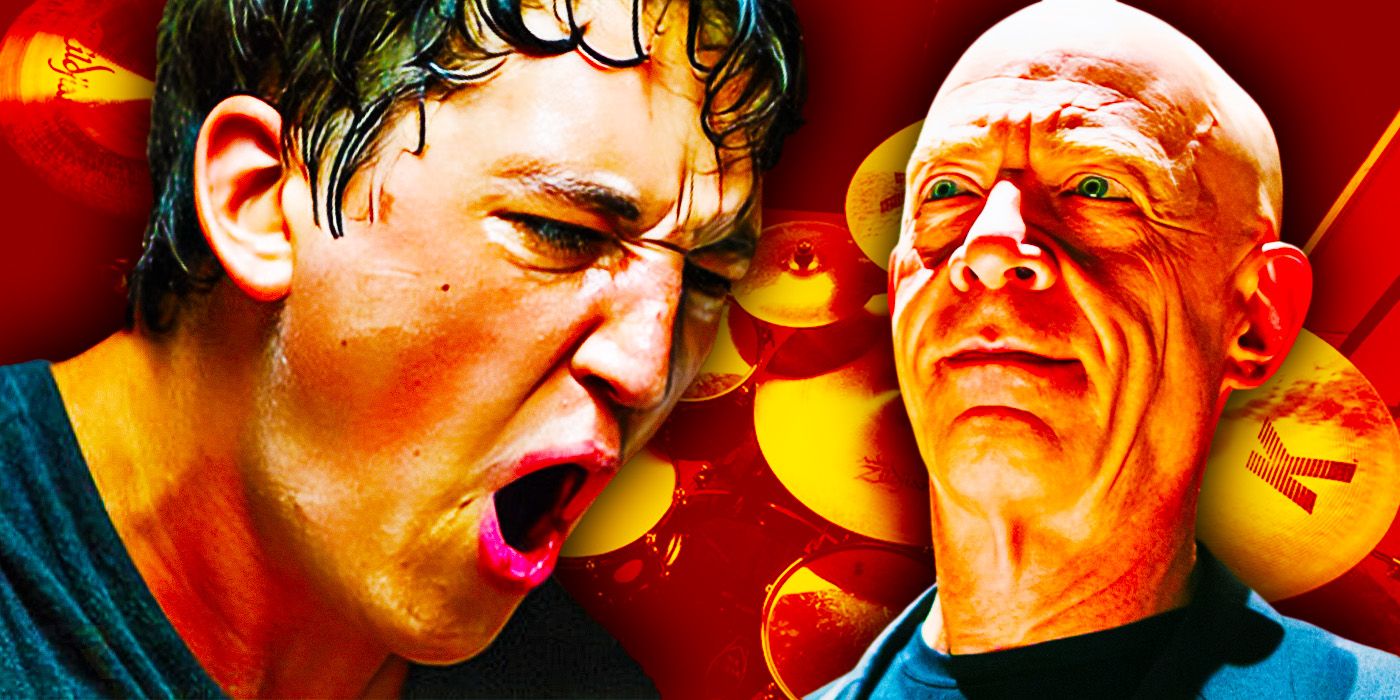
Related
Is Whiplash Based On A True Story? Damien Chazelle’s Real Inspirations Explained
The 2014 movie Whiplash stars Miles Teller as an aspiring drummer and J.K. Simmons as his ruthless teacher. What was the inspiration for the film?
What Happened At The Concert
Fletcher Hadn’t Changed After All
Fletcher is among the 2010s’ greatest movie villains, and Whiplash’s ending proves that beyond any doubt. Knowing just how easily Neiman would come running back when the right opportunity arose, Fletcher used this concert to plant a trap and ruin his student’s career as revenge for testifying against him. Not only did he give Neiman the wrong sheet music, but he also filled the concert hall with the most important people in the business — so his failure would do irreparable damage to his career. This was his final act of revenge against Neiman, not only for testifying but also for not valuing Fletcher.
It wasn’t just the betrayal that made Fletcher angry at Neiman, but also the fact that his student wasn’t appreciating the help he was providing.
It wasn’t just the betrayal that made Fletcher angry at Neiman, but also the fact that his student wasn’t appreciating the help he was providing. In this mind, Neiman would’ve never achieved the level of talent that he eventually did without Fletcher’s constant bullying. Fletcher wanted to punish Neiman for never realizing just how much he’d helped the boy. As Neiman continued to flounder on stage, he eventually stormed away to prevent any further embarrassment. But as he watched the concert from backstage, he realized that he’d acted exactly as Fletcher had wanted — and had disappointed his teacher once again.
Neiman soon returned to the stage and began playing a different piece, taking control of the band and leaving Fletcher powerless. He channeled his anger and frustration into his music, providing the best performance of his life and blowing Fletcher away with his talent. The ending of Whiplash builds an unbelievable amount of tension between the two men and keeps the audience on the edge of their seats throughout. As he realizes that Neiman is reaching his true potential, all of Fletcher’s anger and bitterness fade away. He guides his student through the piece, finally satisfied that his work is done.
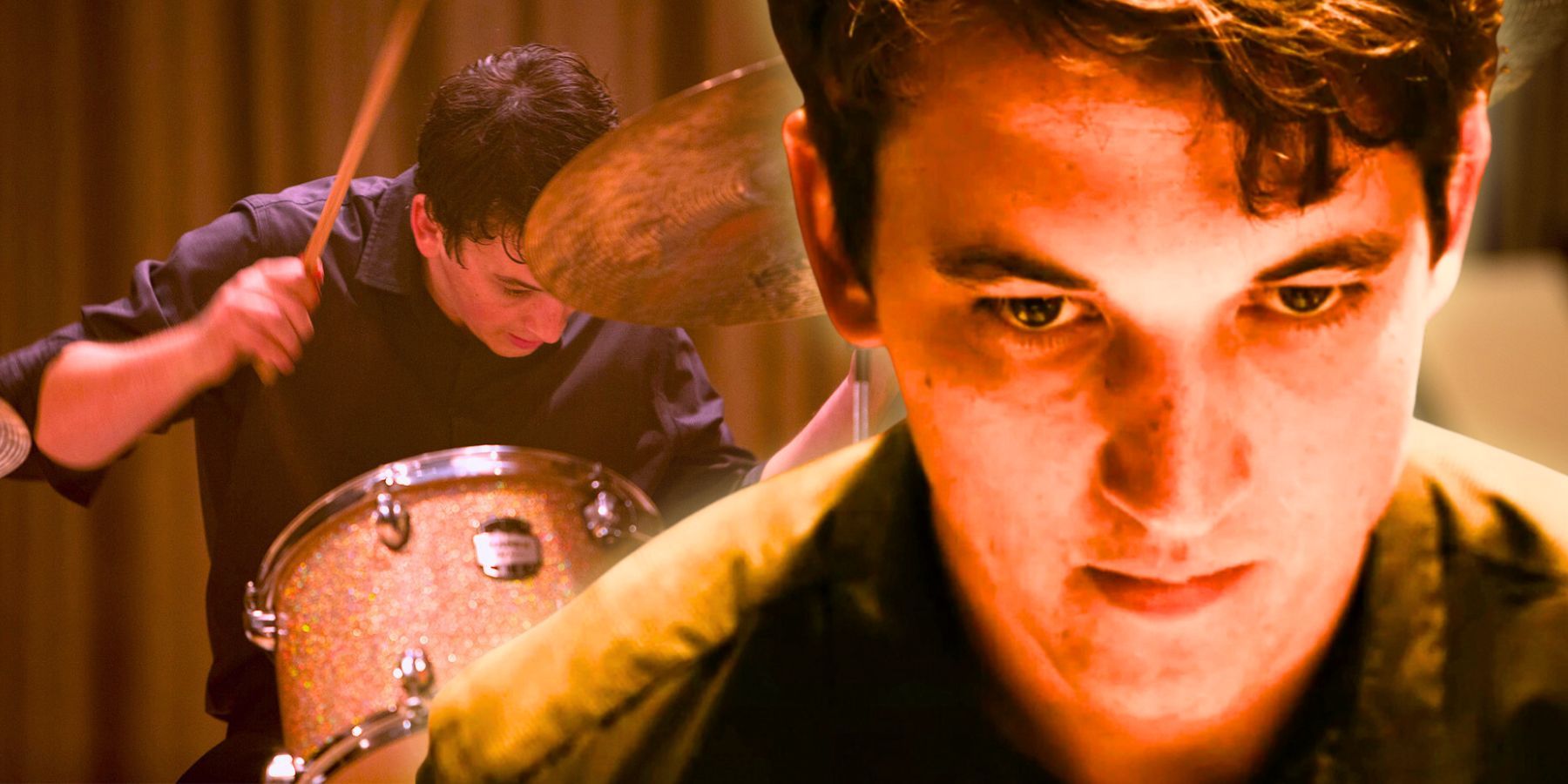
Related
Did Miles Teller Actually Play The Drums In Whiplash?
Given Miles Teller’s convincing percussion performance in Whiplash, viewers have been left wondering if Teller really played the drums in the film.
The True Meaning Of Whiplash’s Ending
The Line Between Mentor And Bully Is Blurred
Ultimately, Whiplash’s ending proves that success takes hard work — and even if the road to greatness seems impossible to traverse, those with the right levels of resilience and determination are the ones able to get there. It doesn’t condone Fletcher’s bullying and abuse, but it doesn’t shy away from proving just how important he was in Neiman’s journey. He never would’ve been able to perform that final piece if Fletcher had simply accepted his student’s mediocrity. Neiman needed somebody to push him and prove that his talent was there, buried deep inside him.
He gives that performance everything he’s got, and it’s not until that moment that Fletcher truly respects Neiman as a musician.
It’s Fletcher’s story that takes priority in the final moments of Whiplash. The story is told from Neiman’s perspective, but the focus is on Fletcher’s drive to bring greatness out of his students— no matter the cost. Damien Chazelle has a very personal relationship with music, and it’s clear from Whiplash that he both admires and despises the way that great musicians can be born from hard work and suffering. There’s no easy road to success, and those who simply accept their failures will never be remembered.
Neiman proves in Whiplash’s final scene that he isn’t one of these people. He doesn’t accept the failure of being embarrassed by Fletcher, but rather comes back on stage and takes control of the situation for himself. He gives that performance everything he’s got, and it’s not until that moment that Fletcher truly respects Neiman as a musician. In the final moments of Whiplash, he recognizes that he’ll always be the villain of this story — but without him, Neiman never would’ve achieved this greatness. That’s enough for him.

Related
Who Took The Music Folder In Whiplash?
Drummer Andrew Neiman got his big break in Whiplash because of stolen sheet music. The culprit is never revealed, but there are three major suspects.
What Happened After The Whiplash Ending According To Director Damien Chazelle
The Oscar-Winning Director Sees A Dark Future For Neiman
While the conclusion opens the door for plenty of speculation, the Whiplash ending explained by Damien Chazelle certainly helps to put things into perspective. While it is possible to see the ending as confirming that Neiman was pushed towards greatness, Chazelle clearly doesn’t see that as a positive. When asked about the ending (via Slashfilm), Chazelle admitted that the moment of recognition and connection in the final moments was a fleeting one between Fletcher and Neiman. He also had a dark thought about where the story goes from there, suggesting that “Andrew will be a sad, empty shell of a person and will die in his 30s of a drug overdose.”
In that sense, Chazelle seems to see the true message of the movie being that Fletcher’s brutal tactics may have been effective in terms of Andrew’s music, but the cost is too high. Andrew was sacrificing the rest of his life in the pursuit of his music and ultimately the music would consume him. Chazelle also saw Fletcher’s behavior rubbing off on Andrew and suggested (via Interview) “Andrew’s basically become Fletcher by the end.” It is a dark idea for what the Whiplash ending means but even with this brief moment of victory for Andrew, it hardly feels like a happy ending.
How The Original Whiplash Short Film Ends
2014’s Whiplash is based on a 2013 short film of the same name which was also written and directed by Damien Chazelle. J.K. Simmons stars in both versions, though in the Whiplash short film the role of Neiman is played by Johnny Simmons rather than Miles Teller. The plot of the short film is much more basic than the feature-length movie. There is no climactic moment of triumph at the end for Neiman, and the whole thing takes place within the same rehersal session where Fletcher’s band are trying to play the Hank Levy song “Whiplash”.
Neiman is invited by Fletcher, though throughout the session Fletcher berates him, throws a chair at him, and even slaps him.
The 2013 short film serves as a snapshot of what 2014’s Whiplash would eventually be, and also gives yet another terrifying glimpse of just how ferocious Fletcher could be as a teacher. The short movie shows Neiman’s first session with Fletcher, and the young drummer quickly discovers how much of a tyrant J.K. Simmons’ character actually is. Neiman is invited by Fletcher, though throughout the session Fletcher berates him, throws a chair at him, and even slaps him.
By the end of the Whiplash short film, Fletcher has reduced Neiman to tears — or, rather, a single tear, something that Fletcher also berates Neiman for. The snippet of Fletcher and Neiman’s relationship is arguably much more tragic than the full-length 2014 movie, though it is also intriguing enough that it makes it easy to see why director Damien Chazelle decided to flesh the characters and story out further.

